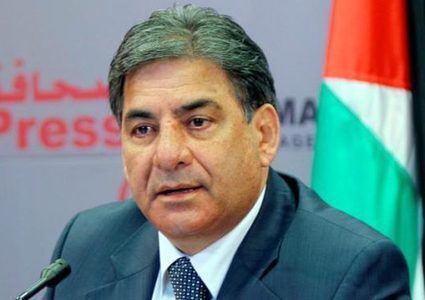During Yasser Arafat's prolonged demise, and even before his illness, Mahmoud Abbas was the automatic candidate to succeed him. This was not only because he was one of the surviving founding figures of the movement, nor because of the reluctance of his senior figure in the Fatah hierarchy, Farouk Kaddoumi. Rather, this was for a more valid and practical reason: he was the one who initiated the Oslo process, and no one else—according to the godfathers' assessments—could complete it, or at least protect it from final collapse.
Abbas secured a model consensus to succeed Arafat. This consensus was embodied by Palestinian fear of the vacuum that would result from the departure of the leader who had dominated the Palestinian situation, both during its wartime and peaceful phases. It was also driven by the limited opportunities available to those who would compete, having long been accustomed to Fatah, which wielded unparalleled influence in Palestinian national life. This consensus was reinforced by a regional and international consensus that viewed Abbas as the most capable man to steer the Oslo Accords, which, under Arafat, were on the verge of collapse.
Since 2004, Abbas's era began with him occupying all of Arafat's positions in Fatah, the PLO, and the Palestinian Authority, and continued until the last meeting held a few days ago in Ramallah.
During this long period, Abbas's presidency has not faced significant opposition, neither from within Fatah, which is governed by a natural loyalty to its leader, nor from the PLO factions, which are best aware of their limited ability to disagree with Fatah, especially after returning home during the Oslo era and the advantages they enjoyed in the "power cake."
Despite the emergence of differences between some Fatah leaders and President Abbas, the results of these differences were decisive in his favor. He removed those who disagreed with him, not only from their positions but also from the homeland. As for the rest of the PLO factions, they were content to record positions that appeared to be oppositional, such as their position on security coordination. However, this did not go so far as to undermine his leadership of the PLO, as much as it undermined the position of the factions that appeared to be "helpless" in the opposition and less able to influence their leader's decisions.
But what had a broader and deeper impact than his leadership was the tsunami triggered by Hamas's victory in the general elections, founded and overseen by Fatah, followed by the coup that separated Gaza from the West Bank. Since that dangerous development, Abbas's leadership has not been in danger; rather, the entire nation has. This represented the second or third Nakba in the history of Palestinian catastrophes, which began in 1948, was followed by the Nakba of 1967, the Nakba of 2007, and the Nakba of 2023, which continues to this day.
In practice, Abbas continued his duties as the recognized president, but not as he had been before the Hamas coup. The man found himself caught between two millstones: Israel, which was encroaching on his authority and his people, and Hamas, which was persisting in its divisions and rebellion against him. To make matters worse, this catastrophic development occurred, worsened, and continued at a time when the prospects for a political solution, of which Abbas was a founding member, had closed. When fate decreed that he lead the Palestinians as Arafat's successor, the rug of solutions had been pulled out from under his feet. The general Palestinian situation, which had been built primarily on the potential settlement that began with Oslo, had deteriorated, and with it the entire Palestinian political system.
The intensity displayed by President Abbas in his speech before the 32nd session of the Central Council, which was more intense than all previous ones, stems from his sense of betrayal and the American sponsor's abandonment of the peace project he had sponsored in the early stages, and his disregard for the Israeli abuse of it midway through and up until now. He also feels betrayed by the policies of Hamas, which he had no role in, neither in their causes, nor in their paths and outcomes.
Abbas, who is approaching the age of ninety, knows better than anyone that rescuing the Oslo Accords and returning them to their old path, which he played a key role in establishing, is not only faltering but also impossible, due to the new developments that have altered the course of the settlement.
Items that had not previously been on the agenda have entered the agenda, such as the Gaza war and addressing its repercussions, which are equal to or even greater than the effects of the Palestinian catastrophes combined. There is also concern about reviving the "Deal of the Century," which has evolved for the worse through the rhetoric of its founder, Trump, and has gone beyond it to something even worse, namely the displacement of the people of Gaza and the appeasement of the Israeli right in its agendas, which are far worse than the agenda of the "Deal of the Century."
Abbas easily passed off some of what he saw and what was demanded of him as reform of the political system. However, what is much more difficult is for his steps in this area to lead to resolving the Palestinian situation from its recurring dilemmas and placing it on a political path that brings the Palestinians closer to their dream of statehood.



Share your opinion
Abbas between the dilemma of division and the complexities of the settlement